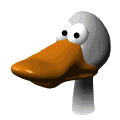| Pages in topic: [1 2] > | Teaching a five-year old to read in two different languages... Thread poster: Alison Schwitzgebel
|
|---|
Hi!
Our five-year old (almost six) has just started school (in German). She had been starting to get the hang of reading in English thanks to the joys of Dr Seuss, but of course she will be taught to read in German in school.
Does anyone else have any experience of teaching a child to read in another language at home? My primary concern is that although the basics are the same (letters make words make sentences..), the pronounciation of the letters in the alphabet is t... See more Hi!
Our five-year old (almost six) has just started school (in German). She had been starting to get the hang of reading in English thanks to the joys of Dr Seuss, but of course she will be taught to read in German in school.
Does anyone else have any experience of teaching a child to read in another language at home? My primary concern is that although the basics are the same (letters make words make sentences..), the pronounciation of the letters in the alphabet is the same.
I don't want to end up with a confused little girl at the end of the day!
Look forward to hearing your experiences! (And if anyone has any book tips that would be very welcome too).
Thanks!
Alison ▲ Collapse
| | | | | Oops, forgot to say: | Sep 3, 2004 |
We do mother language at home, Dad's American, I'm Scottish, we live in Germany and have two other smaller daughters (2 years and 6 months). We speak English at home and outside the house if it doesn't matter that other people round about don't understand what we say. If it does matter that they understand what we say we speak German.
Mairi's (our five-year old) German is fluent with quite a smattering of the local dialect, and her English is excellent with the exception of some strange wo... See more We do mother language at home, Dad's American, I'm Scottish, we live in Germany and have two other smaller daughters (2 years and 6 months). We speak English at home and outside the house if it doesn't matter that other people round about don't understand what we say. If it does matter that they understand what we say we speak German.
Mairi's (our five-year old) German is fluent with quite a smattering of the local dialect, and her English is excellent with the exception of some strange word order some of the time.
[Edited at 2004-09-03 07:48] ▲ Collapse
| | | | James Calder 
United Kingdom
Local time: 00:56
Spanish to English
+ ...
| A couple of useful books | Sep 3, 2004 |
Hi Alison,
I've just bought a couple of books on the subject:
'The Bilingual Family: A Handbook for Parents' by Edith Harding-Esch and Philip Riley (CUP) and 'Growing Up With Two Languages: A Practical Guide' by Una Cunningham-Andersson and Staffan Andersson (Routledge). The first one is very useful and contains quite a few case studies as well as plenty of background info on language and bilingualism. To be honest I haven't started on the second one yet although it does have ... See more Hi Alison,
I've just bought a couple of books on the subject:
'The Bilingual Family: A Handbook for Parents' by Edith Harding-Esch and Philip Riley (CUP) and 'Growing Up With Two Languages: A Practical Guide' by Una Cunningham-Andersson and Staffan Andersson (Routledge). The first one is very useful and contains quite a few case studies as well as plenty of background info on language and bilingualism. To be honest I haven't started on the second one yet although it does have a chapter on 'Practical parenting in a bilingual home' which may be helpful for you.
By the way, I'm a sassenach, my wife is Spanish, we live in Spain and our daughter has just turned one. First words: 'mama', 'aba' (agua) and 'tete' (chupete). As you can see daddy's too busy on the computer to speak to her!
Good luck
James
P.S. She seems to like the Mr Men though.
[Edited at 2004-09-03 08:54] ▲ Collapse
| | | | | experience with my kids | Sep 3, 2004 |
Hi, Alison.
I can tell you what's happening with our kids, in a similar situation.
Dad: German
Mum: Italian
Living in: Italy
School: Italian
At home we speak both languages (Italian with me, German with Dad, + German TV, DVD, CD-ROMs,... and plenty of books!)
We made no specific attempt at teaching them to read in German, but made sure that there are always plenty of books appealing to them, in German, in whatever areas they are interested in (din... See more Hi, Alison.
I can tell you what's happening with our kids, in a similar situation.
Dad: German
Mum: Italian
Living in: Italy
School: Italian
At home we speak both languages (Italian with me, German with Dad, + German TV, DVD, CD-ROMs,... and plenty of books!)
We made no specific attempt at teaching them to read in German, but made sure that there are always plenty of books appealing to them, in German, in whatever areas they are interested in (dinosaurs, animals, short stories,... all the way to the full Harry Potter set)
They both picked up reading in German by themselves, first browsing (reading only larger bits here and there) then reading their books.
The first German book Felix (now 9) read was an animals encyclopoedia for kids he had chosen himself at a bookshop in Germany, age 4: as soon as he got home he sat down with it and read each title (animal name), aal to zebra (he still uses that book a lot, reading all the interesting facts about animals and not just the titles!), his reading being assisted by the pictures.
Then he started to get interested in dynosaurs, so we launched on a succession of dino-books (starting of course with books with plenty of pictures and concise info boxes, lift-the-flap and so on) and all those long names were great for his reading skills! After that he could read (and did read) pretty much anything. As his reading became more and more fluent (he read the last Harry Potter book in a week!), his German spelling also improved enormously, without us having to formally teach him how to write in German.
With Sophie (now 7) it was a bit slower, because she is lazier about reading and prefers to be read to. It was more of a challenge to find books that would really "grab" her (both in Italian and German). But as she got more confident reading in Italian, she also started to read in German. In her case, we found that she enjoyed reading more from CD-ROMs (like the Loewenzahn series) than from books - we feel that reading has to be a pleasure and not a duty, so as long as CD-ROMs (and we found plenty of great ones for kids in German, from Terzio Verlag) give her the practice she needs to get to the point where reading becomes fluent enough to be a pleasure, that's fine. In fact this summer she has started to read longer books in both languages, so it looks like it's paying off.
ciao,
Roberta ▲ Collapse
| | |
|
|
|
| Reading in two languages | Sep 3, 2004 |
When our son was 4 and started school we lived in the Netherlands. At home we spoke English (similar scenario to yours) and at school my son learned Dutch. We decided not to teach him how to read in English but to let him learn to read Dutch first. We did though continue speaking in English to him.
Now we live in the UK, my son is 14 and goes to a European school where he is in the Dutch section. English is his second language there (German his third). He also went to an English-onl... See more When our son was 4 and started school we lived in the Netherlands. At home we spoke English (similar scenario to yours) and at school my son learned Dutch. We decided not to teach him how to read in English but to let him learn to read Dutch first. We did though continue speaking in English to him.
Now we live in the UK, my son is 14 and goes to a European school where he is in the Dutch section. English is his second language there (German his third). He also went to an English-only school from the age of 8 to the age of 11 (from the Dutch school; it took him 3 months to be 'average' regarding writing, reading English was not a problem). He can read in all three languages without any problems at all. He is bilingual in Dutch and English.
I think it depends very much on your child and your patience. My son loves reading so he has an added incentive. If the book is good but written in Dutch, that is what he will read. Same goes for English. Apparently there are more good books in English so he reads more in English. Any recommendations about German books that may appeal to a 14-year old who loves reading Philip Pullman books will be gratefully received. ▲ Collapse
| | | | | The skills will eventually transfer, don't worry! | Sep 3, 2004 |
Alison,
I do not have any kids of my own, but in a past life, I was an elementary school teacher in a bilingual school (6 years experience in ESL in the U.S. and bilingual schools abroad).
You are doing the best possible thing by instilling a love of books and reading in your children and providing them with a language-rich environment, regardless of the language.
While the decoding process and phonetic rules might vary from one language to another, the key... See more Alison,
I do not have any kids of my own, but in a past life, I was an elementary school teacher in a bilingual school (6 years experience in ESL in the U.S. and bilingual schools abroad).
You are doing the best possible thing by instilling a love of books and reading in your children and providing them with a language-rich environment, regardless of the language.
While the decoding process and phonetic rules might vary from one language to another, the key is that you have allowed your children to develop these cognitive abilities, which they will then be able to apply to a different set of rules for a different language once they are in the school setting.
Sadly, in the U.S. I saw a number of parents with the best intentions who deprived their children of the enriching experience of children's literature and stories in their own language, preferring to "wait" till the children got to school so that they could learn in English first. The kids ended up what we called "language impoverished" and "reluctant readers." They were actually behind the others, not because of their oral bilingualism, but because they had not had the chance to develop early literacy skills at home, skills that they could have transferred to English once they entered school.
Another warning: read the books recommended above. You may find that your kids' teachers lack training and knowledge in the area of bilingualism and that they will try to discourage you when they see that your children are not developing in exactly the same way as monolingual students. Information will be your best defense and will reassure you that your children are on the right track.
Good luck in your efforts!
Regards,
Sara
[Edited at 2004-09-03 09:11] ▲ Collapse
| | | | nothing
Local time: 00:56
English to Spanish
+ ...
| Books in German | Sep 3, 2004 |
Any recommendations about German books that may appeal to a 14-year old who loves reading Philip Pullman books will be gratefully received.[/quote]
I think if your son likes "His dark materials", he would like Hans Magnus Enzensberger's books.
I don't know if he has tried some of Cornelia Funke, he might like those too.
And what about Hoffman's tales?
I am sure there will be many other books that he would enjoy, but I only know the ones that have been trans... See more Any recommendations about German books that may appeal to a 14-year old who loves reading Philip Pullman books will be gratefully received.[/quote]
I think if your son likes "His dark materials", he would like Hans Magnus Enzensberger's books.
I don't know if he has tried some of Cornelia Funke, he might like those too.
And what about Hoffman's tales?
I am sure there will be many other books that he would enjoy, but I only know the ones that have been translated ▲ Collapse
| | | | | My experience | Sep 3, 2004 |
Just thought I'd add a comment. My daughter, now 17, was born here in Italy (I'm American, her father is Italian). I spoke to her exclusively in English and read books to her in English. She was surrounded by Italian, of course (father, grandparents, television, friends).
I decided NOT to teach her to read in English before she went to school because I was afraid it would confuse her. In the first grade she learned to read in Italian, though she and I continued to speak English to each oth... See more Just thought I'd add a comment. My daughter, now 17, was born here in Italy (I'm American, her father is Italian). I spoke to her exclusively in English and read books to her in English. She was surrounded by Italian, of course (father, grandparents, television, friends).
I decided NOT to teach her to read in English before she went to school because I was afraid it would confuse her. In the first grade she learned to read in Italian, though she and I continued to speak English to each other at home. At the end her second year in elementary school, we went to the US to see my folks and went somewhere on a long car trip. She was bored and found the car maintenance manual in the side pocket of the car door... and started to read parts of it aloud! We were astonished: she had taken the rules she'd learned for reading in Italian and simply applied them to English. The most surprising thing was that she pronounced the "th" correctly. I can only guess that since she knew "th" didn't form an "Italian sound" she figured out that it must be an English one.
Children have amazingly flexible minds. The important thing -- and I back my colleagues on this as well -- is that they be given a love for books and reading. To this day, Barbara loves to read and will pick up a book in English OR Italian, depending on what it is she wants to read.
Catherine
[Edited at 2004-09-03 10:08] ▲ Collapse
| | |
|
|
|
When I started to learn reading in German, I fetched the English books from my elder siblings and started covertly to read them: "This is Peter. Peter eats an apple. ..."
Maybe this even improved my German, which was particularly good in the first years.
| | | | Laura Vinti 
United States
Local time: 19:56
German to Italian
+ ...
| About the books recommended... | Sep 3, 2004 |
Hello,
Are the books recommended above also useful for bilingual kids who do not have English as one of their languages?
My kids (two girls aged 7 and 5, father: German, mother: Italian, living in Germany)speak German and Italian.
Thanks!
| | | | | I agree with Roberta and Sara....... | Sep 3, 2004 |
Sara Freitas-Maltaverne wrote:
Alison,
I do not have any kids of my own, but in a past life, I was an elementary school teacher in a bilingual school (6 years experience in ESL in the U.S. and bilingual schools abroad).
You are doing the best possible thing by instilling a love of books and reading in your children and providing them with a language-rich environment, regardless of the language.
While the decoding process and phonetic rules might vary from one language to another, the key is that you have allowed your children to develop these cognitive abilities, which they will then be able to apply to a different set of rules for a different language once they are in the school setting.
Sadly, in the U.S. I saw a number of parents with the best intentions who deprived their children of the enriching experience of children\'s literature and stories in their own language, preferring to \"wait\" till the children got to school so that they could learn in English first. The kids ended up what we called \"language impoverished\" and \"reluctant readers.\" They were actually behind the others, not because of their oral bilingualism, but because they had not had the chance to develop early literacy skills at home, skills that they could have transferred to English once they entered school.
Another warning: read the books recommended above. You may find that your kids\' teachers lack training and knowledge in the area of bilingualism and that they will try to discourage you when they see that your children are not developing in exactly the same way as monolingual students. Information will be your best defense and will reassure you that your children are on the right track.
Good luck in your efforts!
Regards,
Sara
[Edited at 2004-09-03 09:11]
Hello, Alison. I agree with Sara and Roberta in fact. I have the same problem now, even worst. I am Albanian, my husband Italian and we are in Kiev, Ukraine, where my kids go an International School. The first language there is English and the rule is that the kids have to pick up a second language between Russia, German and French. What a headache. I was (still am a bit) terrified about that, since my daughter will have to deal at school with English and French and at home with Italian and Albanian. The teachers assured me that this is just fine like that, since there are other children at the school having the same situation of dealing with three-four languages.
All I hope is that she doesn\'t forget any of them in the long term, because I cannot pretend that poor girls speaks and reads all four them at the same level (as a matter of fact, French just started).
The good thing of them is that they both like books...I mean my oldest has just started to read in English and Italian (Albanian as well, but she gets confused a lot with the ë, ç. The problem is that she is still slow (she is 6 years old and some months) and has no patience to go through a story on her own, she gets tired soon and wants me or her dad to read for the. Well fingers crossed, people, and let\'s see what will happen.
All the best for your daughter and every body’s else.
Fabiana
| | | | | Wait until problems arise, then talk them over (if you need to) | Sep 3, 2004 |
I've read somewhere that bilingual children have surprisingly few problems with reading and even read better than others if encouraged.
We speak mostly Danish at home - living in Denmark, father and surrounding family Danish, son born just as I had finished language school and needed all the practice I could get. He did not speak much English until he was three and fluent in Danish, though we read to him in English and he understood it passively. It came overnight on holiday with G... See more I've read somewhere that bilingual children have surprisingly few problems with reading and even read better than others if encouraged.
We speak mostly Danish at home - living in Denmark, father and surrounding family Danish, son born just as I had finished language school and needed all the practice I could get. He did not speak much English until he was three and fluent in Danish, though we read to him in English and he understood it passively. It came overnight on holiday with Granny in England!
It's many years ago now, but our son, then four, was unusually quiet for ten days, and we had just posted a letter to my mother with the amazing news that he did not seem to have learnt much new that week!! But on the way home he started on our usual game of spelling our way through road signs etc. and he just announced he could read!
"Does M always say mer?"
"Yes, it does."
"Do all the other letters work the same way?"
"No, quite a lot of them cheat a bit."
"I thought so. But then I can read."
(This conversation went on in Danish, where varying sounds can be quite as baffling to beginners as in English.)
We read with him (or he read with us) daily until he was quite a lot older, and simply discussed things as they arose. He borrowed library books and read voraciously about anything that interested him - ants, dinosaurs, stars, Donald Duck in both languages and all the usual children's stories... and I translated several books into Danish with his help!
There just were no problems that could not be solved quickly along the way. Danish does have more 'structure' than English, though fewer cases and genders than German. (But spelling isn't as easy!) We were not entirely happy with the teacher - it was not in fashion at the time to teach grammar and punctuation, which are in fact necessary. They came instinctively with reading, and we helped at home.
It's a miracle, so just enjoy it! ▲ Collapse
| | |
|
|
|
Kit Cree 
Local time: 01:56
Member (2003)
French to English
+ ...
| jolly phonics | Sep 3, 2004 |
hi,
my 4 year old (english from both parents at home spanish in the street) surprised me in the summer by suddenly being able to read in spanish! he started school at 3 and obviously the fact we speak only english at home has made no difference to his progress at school. it made me realise that i should get my skates on with reading in english - i've found it easier to develop similar skills in both languages at the same time - so far!
spanish is phonetic and therefore slightly easie... See more hi,
my 4 year old (english from both parents at home spanish in the street) surprised me in the summer by suddenly being able to read in spanish! he started school at 3 and obviously the fact we speak only english at home has made no difference to his progress at school. it made me realise that i should get my skates on with reading in english - i've found it easier to develop similar skills in both languages at the same time - so far!
spanish is phonetic and therefore slightly easier to read. if you can say the sounds you can read it. english is slightly more complicated!
luckily my sister is a reception class teacher in the UK who recommended the 'jolly phonics' series - available from the early learning centre - helps to install english sounds.
so far so good. although we all accept that reading in english will take much longer to achieve. it does help that my eldest son is a sensible, hard working little boy. not sure i'll have quite so much sucess with his rebellious little brother.....
as they progress the Oxford Reading Scheme is also highly recommended - comes with video and comic, both called 'The Magic Key' - aimed at 5 to 7 year olds.
hope this helps ▲ Collapse
| | | | James Calder 
United Kingdom
Local time: 00:56
Spanish to English
+ ...
| Useful for non-English speakers too | Sep 3, 2004 |
Laura Vinti wrote:
Hello,
Are the books recommended above also useful for bilingual kids who do not have English as one of their languages?
My kids (two girls aged 7 and 5, father: German, mother: Italian, living in Germany)speak German and Italian.
Thanks!
Hi Laura,
The books I recommended are in English but apply to all languages. The first book contains case studies on families where English is not spoken.
I don\'t know if they have been translated into German or Italian - perhaps you could check on the Internet.
HTH
James
| | | | Ashar 
Pakistan
Local time: 04:56
English to Urdu
+ ...
| Pakistan's Experience: 3 languages for every child | Sep 4, 2004 |
I was reading with interest the experiences of various participants regarding 'Teaching a five-year old to read in two different languages'. In my country Pakistan, every child is forced to experiment in three different languages.
Pakistan comprises four provinces, Punjab, Sindh, NWFP and Balochistan. Each province has its own unique language, not understandable by the people of other provinces. A child living in any of the province learns his mother tongue ( usually the language of... See more I was reading with interest the experiences of various participants regarding 'Teaching a five-year old to read in two different languages'. In my country Pakistan, every child is forced to experiment in three different languages.
Pakistan comprises four provinces, Punjab, Sindh, NWFP and Balochistan. Each province has its own unique language, not understandable by the people of other provinces. A child living in any of the province learns his mother tongue ( usually the language of province). Then comes the national language which is Urdu. The child speaks Urdu language with peers and at school and also at the mainstream society. Now comes the last and most difficult stage; English at school. With the passage of time , the increasing demand of English has compelled parents to admit their children to such schools where English skills are imparted. And all schools, from public to private are teaching more and more subjects in English. What is the end result! A disaster.
A child never learns English. He can speak and write Urdu but not upto that level which a native should have. Interestingly he learns to speak his mother tongue quite good, but over 80% percent are not able to read and write their mother tongue. ▲ Collapse
| | | | | Pages in topic: [1 2] > | There is no moderator assigned specifically to this forum. To report site rules violations or get help, please contact site staff » Teaching a five-year old to read in two different languages... | Trados Studio 2022 Freelance | The leading translation software used by over 270,000 translators.
Designed with your feedback in mind, Trados Studio 2022 delivers an unrivalled, powerful desktop
and cloud solution, empowering you to work in the most efficient and cost-effective way.
More info » |
| | TM-Town | Manage your TMs and Terms ... and boost your translation business
Are you ready for something fresh in the industry? TM-Town is a unique new site for you -- the freelance translator -- to store, manage and share translation memories (TMs) and glossaries...and potentially meet new clients on the basis of your prior work.
More info » |
|
| | | | X Sign in to your ProZ.com account... | | | | | |
















